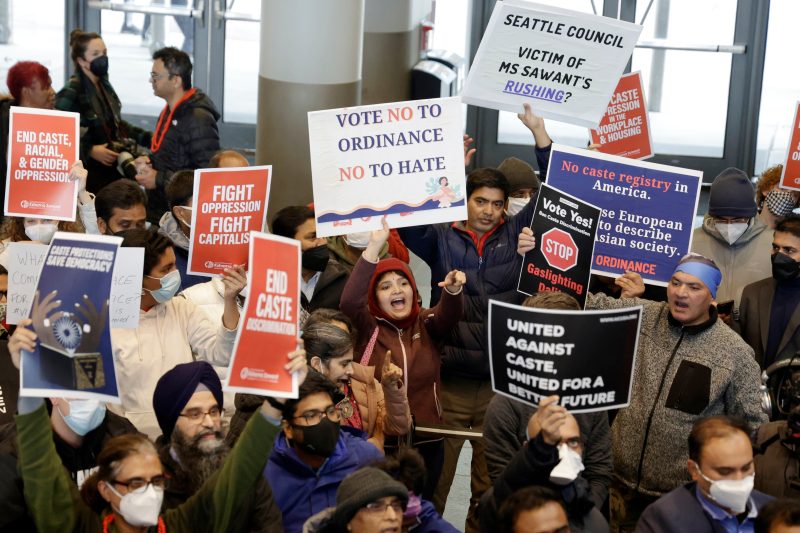Caste Discrimination in the United States is an issue which has been steadily gaining attention recently. A group of Democratic legislators are pushing for a specific bill to be passed that would make caste discrimination a form of discrimination in the US to be illegal. While this has been welcomed by many in the US, not all are in favor of this law. Some Indian Americans have raised objections to the bill, citing concerns about how it may negatively affect their community.
The proposed bill seeks to add an amendment to Title VII of the Civil Rights Act of 1964 which outlaws discrimination based on race, color, religion, sex, and national origin. If passed, the amendment would include caste discrimination as a protected category in the United States. It would protect those who have been oppressed due to their caste status—typically consentually endogamous groups among Hindus, Buddhists, Jains, and Sikhs — from facing discrimination.
The proposed bill has faced strong opposition from certain Indian-American communities who worry that the bill will be used to undermine their cultural values. Indian American communities adhere to traditional social hierarchy that is based upon caste lines, and they fear that the proposed bill could be used to interfere in their internal affairs and impinge upon the right of individuals to practice their faith.
Critics of the bill further argue that caste discrimination is a centuries-old issue in India that will require much more contextual effort than the passing of legislation in order to be addressed and eradicated. They argue that laws such as the bill in question are just “Band-Aid Fixes” that do not get to the root of the problems or address the underlying causes of oppression that people experience due to caste discrimination.
Additionally, opponents of the bill worry that it could be used to target South Asian communities in the US and create further racial and religious divides in the country. This is especially concerning in light of the fact that South Asian Americans are already subject to very high levels of discrimination in the country.
While the bill is intended to be a step forward in combatting discrimination, it is clear that there are still concerns and questions about whether it is the best approach to this problem. It should be acknowledged that the complexities of caste discrimination in the US require careful consideration and debate. Governments, communities, activists, and civil society organizations should work together to ensure that any legislation passed with regards to caste discrimination in the US is effective in addressing its root causes in a way that maintains the rights of India Americans, other South Asian groups, and all those who may be impacted by the proposed law.
“Banning Caste Discrimination: Will It Divide Indian Americans?
previous post
